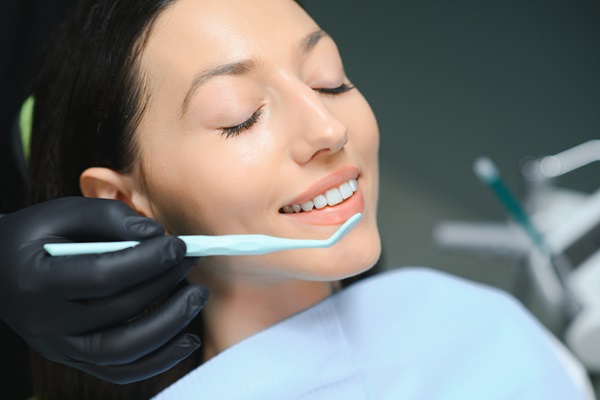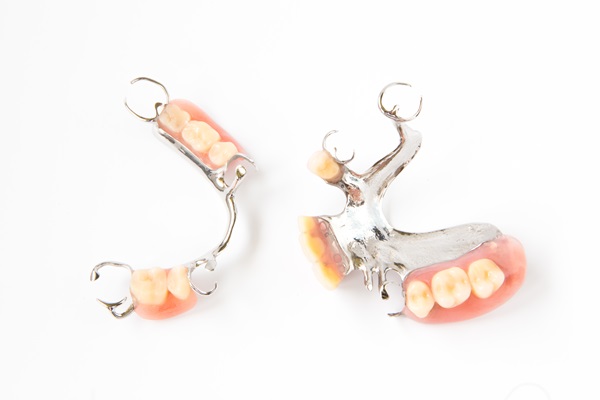 If you are adjusting to new dentures, you are far from alone. The ADA estimates that 120 million Americans are missing teeth, with 36 million missing all of them. Even those who have used dentures before may need replacements that they must get accustomed to. A major part of the adjustment is learning what to eat. While dentures enable people with missing teeth to better eat and speak, there are still some changes to be aware of.
If you are adjusting to new dentures, you are far from alone. The ADA estimates that 120 million Americans are missing teeth, with 36 million missing all of them. Even those who have used dentures before may need replacements that they must get accustomed to. A major part of the adjustment is learning what to eat. While dentures enable people with missing teeth to better eat and speak, there are still some changes to be aware of.
Suggested foods
At first, dentures will likely feel awkward in the mouth, as if they are too big, and the gums will be sensitive to their presence. The mouth also produces more saliva, which can make the dentures slip slightly. Irritation and sores are not uncommon. On top of this, one effectively needs to learn how to bite properly with dentures, which is very different from using natural teeth.
Because of this, it is recommended that you start with soft or liquid foods to minimize chewing. Scrambled eggs, mashed potatoes, oatmeal, and soups are good choices. Avoid sticky foods that can be difficult to remove from dentures, and watch out for spicy foods that can irritate an already sore mouth. Also, be careful with the food that is served hot or cold. Many new wearers find that judging the temperature of food is difficult, having relied on the teeth to feel heat or cold before biting down fully; try other ways to judge temperature, such as with your lips.
While adjusting to new dentures, they will gradually feel more comfortable in your mouth. Soon, you can start eating firmer foods again. As you continue to practice, you can gradually expand your food options. Some good choices at this stage include:
- Cooked vegetables, especially boiled or steamed
- Ground beef or turkey
- Pasta and cooked rice
- Poultry, eggs, or fish
- Soft bread
- Stewed or slow-cooked meats (e.g. beef brisket, pulled pork)
Cutting food into small pieces or strips helps, so think about this when choosing what to eat. Try to use both sides of the mouth to distribute pressure evenly, and if you have a hard time swallowing, take a drink to wash it down. Avoid foods that you will need to bite into with your front teeth; if you do eat them anyway, focus on using your canines instead of your incisors.
Even when you are adjusted, you will still face some dietary restrictions. Red meats, for instance, are often tough to chew, so you might choose poultry or fish over a steak. Sticky and crunchy foods are likely to still be an issue as well; even with more practice in chewing, they can get stuck in your dentures. Choose soft, ripe fruits and cooked vegetables over apples or raw carrots, and steer clear of crunchy snacks that may leave bits and pieces in your teeth, like crackers, popcorn, and whole nuts. Candy lovers can enjoy chocolate, preferably without toffee or nuts, and ice cream or frozen yogurt is a welcome treat.
Conclusion
Adjusting to new dentures means learning to eat with dentures in mind. Practice and the right choice of diet can make the process easier.
Request an appointment or call San Dimas Family and Sedation Dentistry at 909-305-2300 for an appointment in our San Dimas office.
Recent Posts
Adjusting to new dentures is a process that usually takes several weeks. You must learn how to eat, speak, and adapt to the feel of having them in your mouth. Though every effort is made to have your dentures fit correctly when they are made, you are likely to need to visit your dentist for…
Most first-time denture candidates are nervous about adjusting to new dentures. They usually do not know what to expect, and they may wonder if dentures will feel natural.People get dentures for many reasons, such as broken or missing teeth, excessive tooth decay, gum disease, severe tooth pain or trauma, and painful sensitivity to hot and…
Getting new dentures can be a simultaneously exciting and daunting process. Although adjusting to new dentures takes some time and work, patients can immediately begin to enjoy the positive results of a full smile and a more rounded-out face. However, some aspects of adjustment may require a bit more practice. Chewing becomes somewhat different with…


